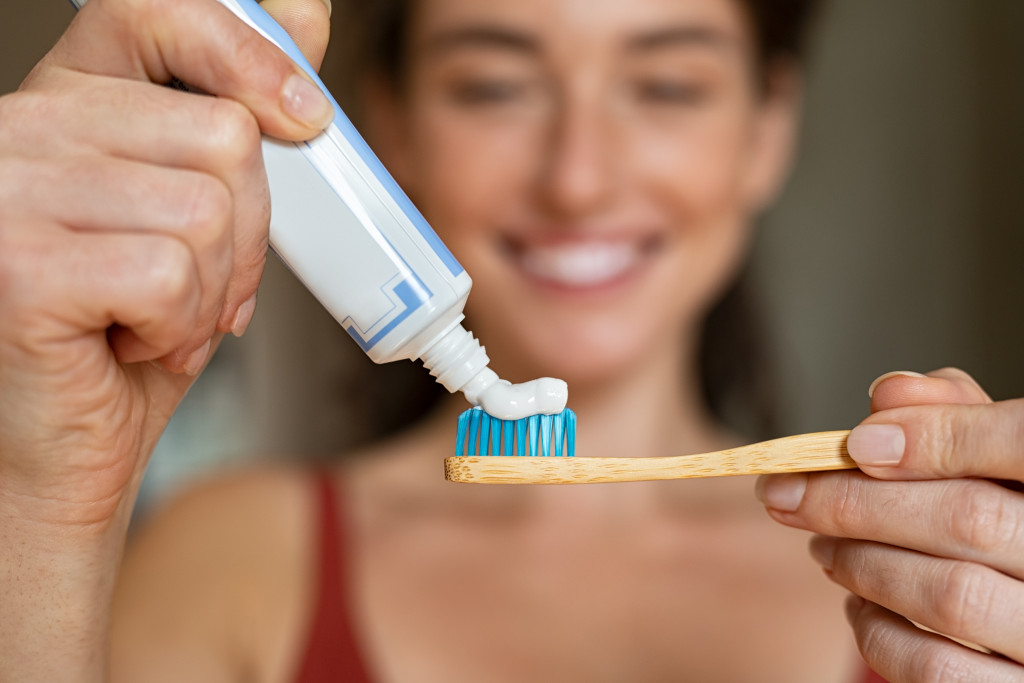- Assess current oral care routine and prioritize oral health.
- Incorporate stress-reducing practices into your routine to achieve balance and well-being.
- Eat a nutrient-rich diet to protect teeth and gums, and avoid smoking and drinking.
- Incorporate self-care practices into your routine to reduce stress and promote balance.
- Make sure your routine is sustainable to better care for your oral health.
Good oral hygiene is essential for total health and well-being. It helps protect you from tooth decay, gum disease, and other dental problems caused by bacteria in the mouth. This guide will provide tips for creating an oral care routine that promotes balance and well-being and help you identify potential issues arising from inadequate oral care.
1. Assess Your Current Routine
The first step in creating a balanced oral care routine is assessing your current actions to care for your teeth and gums. Are you visiting the dentist for regular check-ups? Are you brushing your teeth and flossing regularly? Do you use additional products such as mouthwash or whitening toothpaste? Assessing your oral care routine helps you identify areas needing improvement and focus on the most important aspects.
2. Prioritize Your Oral Health
Oral health is essential to overall health and well-being; you should not neglect it. Prioritizing your oral health ensures that you take necessary precautions to protect your teeth and gums from issues such as cavities, gum disease, tooth decay or severe oral health problems like periodontitis.
Here are some ways you can prioritize your oral health:
Regular Visits to the Dentist
Visiting a reliable dental clinic regularly is one of the most important things you can do for oral health. Regular visits to the dentist allow for early detection and treatment of any potential issues, ensuring that your mouth stays healthy and pain-free. Dentists will examine your teeth and gums during these visits for signs of decay, infection, or other oral health problems.
Brushing and Flossing

Creating a consistent brushing routine helps prevent plaque buildup and tooth decay. Brushing your teeth twice a day with fluoride toothpaste is recommended, especially after meals. Flossing daily is also important to remove food particles and bacteria between your teeth that brushing alone cannot reach. A soft-bristled toothbrush and dental floss are recommended to avoid irritating your gums.
Using Mouthwash
Mouthwash is a great way to keep your mouth clean and healthy. It can help remove food particles and plaque from your teeth, and it can also help freshen your breath. It benefits your oral hygiene and overall health, so include it in your routine. Choosing the right mouthwash for you is important for optimum results. You can consult your dentist for advice.
Addressing Oral Health Issues
Maintaining good oral health starts with preventive habits, but it’s also important to be aware of potential issues and address them quickly. Contact your dentist immediately if you notice any changes in your teeth or gums, such as swelling, bleeding, or pain. With oral health issues being addressed directly, you can avoid long-term problems.
3. Consider Your Eating Habits
Your eating habits can have a major impact on your oral health. Eating healthy and nutrient-rich foods can help protect your teeth from decay and infections, while sugary or acidic snacks can corrode the enamel of your teeth and cause cavities. Avoiding smoking and excess drinking is also essential for your overall health, as it leads to bad breath and other oral health problems.
Your diet should include several important nutrients for your oral health, such as calcium, phosphorus and vitamin D. Foods rich in these vitamins and minerals can help strengthen the bones in your jaw. Additionally, protein helps build strong teeth and gums, while carbohydrates provide energy for your body to fight off bacteria and infections. Eating crunchy vegetables like carrots or celery can help rid plaque from your teeth. Ensure also to include dairy products and foods high in fiber, as these can reduce the number of bacteria in your mouth.
4. Incorporate Self-Care Practices

Taking care of your teeth and gums is essential for overall well-being, but taking time for self-care is also important. Incorporate meditation, yoga, or journaling into your oral care routine to help reduce stress and promote balance. Creating a journal for your oral care routine can help you track and reflect on your progress. When you see an improvement in your journal entries, you’ll be more motivated to continue your routine. If you are motivated, the outcome is healthy teeth and gums and mental well-being.
5. Make Your Routine Sustainable
It’s important to ensure your oral care routine is sustainable. This means taking the time to reassess your way regularly, making any necessary adjustments, and ensuring that you are motivated to maintain your habits over the long term. With a sustainable oral care routine, you will develop a safe and effective way to make gradual changes that lead to lasting results.
Final Words
Creating an effective oral care routine that promotes balance and well-being takes time, but it is possible with the right strategies. Prioritizing your oral health and incorporating stress-reducing practices into your routine can help you maintain healthy teeth and gums while promoting your mental health and overall wellness.


